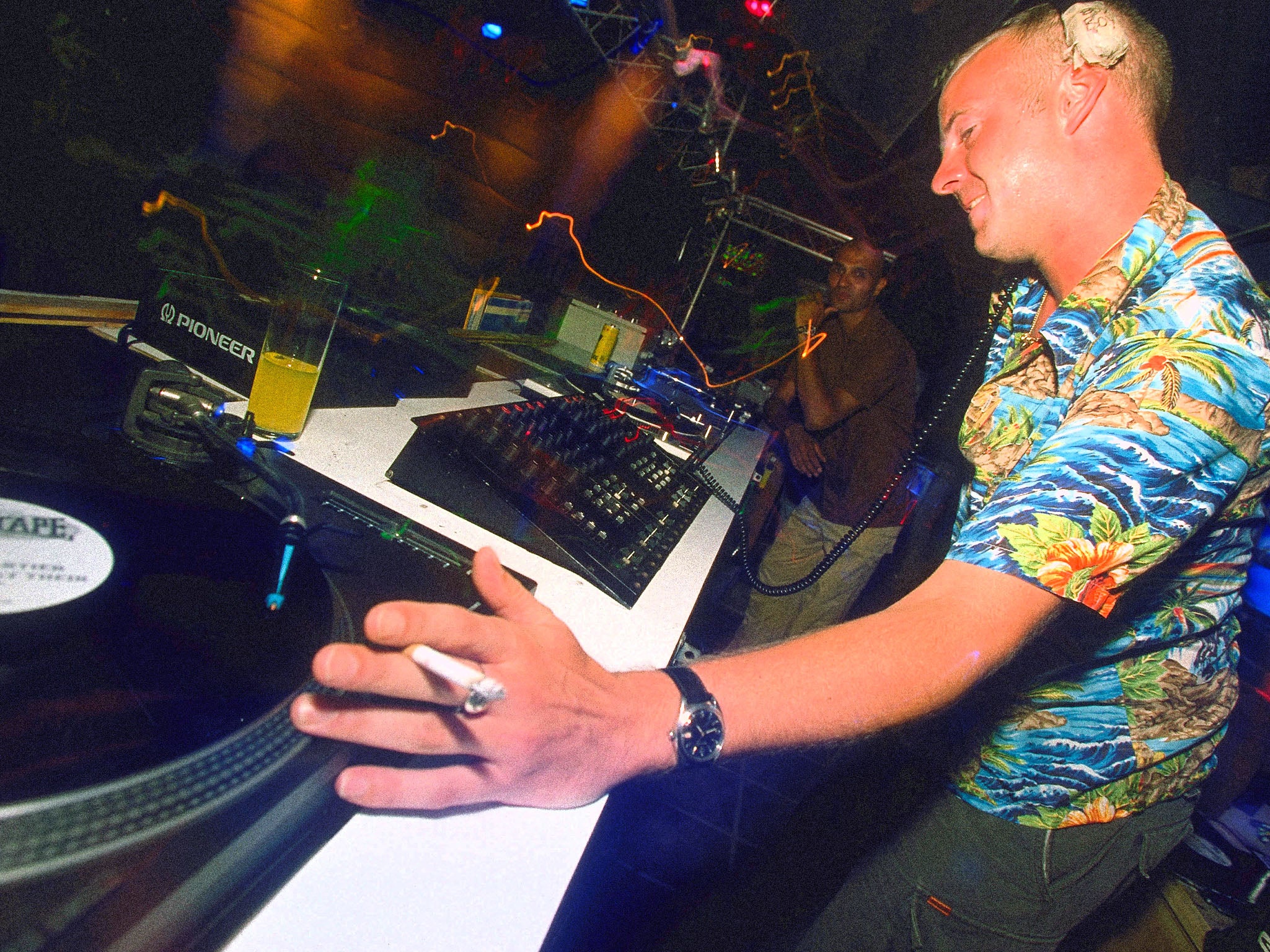I’m a DJ – I beg you, please stop asking for requests
You don’t ask Mark Rylance to change his lines in a play, so why should I switch songs mid-set to play your favourites, asks DJ Oliver Keens


The theatre world has been up in arms lately amid a rise in bad behaviour from audiences. People have been attending shows uproariously drunk, sometimes fighting and generally howling and screeching like foxes shagging. And while it’s obviously a grim situation, I feel obliged to point out that actors experience a fraction of the bad behaviour that DJs do. Mark Rylance, for example, has never been asked to drop a Shakespeare soliloquy when he’s performing Beckett. Beverley Knight has never been asked where the loos are while she’s onstage. James Norton has never had a demonic guy out of his mind on drugs tell him he’s s*** and that he’s going to “f*** up” in front of everyone.
That happened to me in Brighton in the early 2000s, at maybe one of the first handful of times I ever played a club. I love DJing and I’m sure I always will. But it’s sad to say that – even on a good night – it can be a wildly confrontational and aggressive job, and a strangely lonely one, too. It’s a situation that’s absolutely not helped when people ask for requests.
You really can perfectly split humanity between people who will or won’t ask a DJ for a song. To the vast majority of the public, it feels like a deeply embarrassing and cringeworthy move. An act of high arrogance. “You wouldn’t burst into a busy kitchen and berate a chef into adding cumin to a tiramisu,” a friend of mine once said. People have offered me cash to play certain songs before. Imagine someone doing something similar to a newsreader or conductor at the Proms.
I’m the last person to claim that DJing is high art, or that DJs should be especially exalted. For the most part, we humbly strive to make you put your hands in the air like you just don’t care. But for as long as we’re able to keep AI bots out of the DJ booth, people need to understand that there are some very heavy human emotions at work when we’re doing our thang.
It’s taken me an age to develop a resistance towards requesters, mainly because I’m terrible at saying no. For most of my life, I’ve been the definition of a people-pleaser – a man too insecure to ever trust in myself for more than a few seconds at a stretch. Years ago, after what felt like an hour of straight haranguing, a mate persuaded me to play “Reach” by S Club 7 at an impeccably cool party. The whole room turned at me in screw-faced disgust, and my mate just stood there cackling.
This weekend I played London’s Mighty Hoopla festival and had multiple phones waved my way with the word “PADAM” flashing on them – held by people craving Kylie’s horny new anthem, “Padam Padam”. Again, I caved, because it was a quick cheap slay. Don’t get me wrong – very occasionally requesters can really nail it. I used to carry a small pack of Poundland gold stars for this occasion, but mostly people were confused rather than amused, so I stopped.
But a deeper reason why I’ve never liked being critical of requesters is that DJ culture often revels in being bullishly offensive towards anyone who approaches the decks. It’s often got quite a toxically macho edge to it, best categorised by a certain style of DJ garment that might carry slogans such as: “F*** Off, I’m Mixing” or “This DJ doesn’t take requests”. Granted, 99 per cent of these T-shirts are sold to men who only ever DJ in their man caves to an audience of no one, acting like they’re a 53-year-old Ferris Bueller, but there’s also an ever-churning meme mill of clips of male DJs humiliating women who ask for songs, either by letting off smoke machines in their face or embarrassing them on the mic.
I once saw a DJ at a rock club make a big spectacle of ripping up the A4 pad next to his booth that punters had been asked to jot their requests on. He got a cheer as well – because nothing says rock and roll like an A4 pad. To my mind, this headstrong mindset plays into some of the worst aspects of male culture: the need to aggressively defend your status, and the need to crow on about how you’re right and everyone else is wrong.
I think DJs would be better off if they instead told people about the fragility of the job. Someone once described being in the same booth as globally renowned Chilean techno DJ, Ricardo Villalobos – an institution in the UK from his epic sets at London club Fabric. They said when they watched him from behind, he would frequently stand on one leg as he was deep in a mix. It blew my mind because I often find myself doing the same – I think of it as a way to physically externalise the incredibly precarious act of keeping two unconnected records locked together while adjusting their frequencies for a minute or longer. Factor in being stared out by a room of people who are drunk or high, plus the incredible volume of noise you’re in control of and it’s maybe easier to understand how vulnerable DJs can end up feeling. And why we don’t whoop it up when people ask if we’ve got a mic because it’s their best mate’s birthday.

As much as culture shovel-feeds us tropes of the DJ as an adored demi-god colossus, harassment is much more commonplace than you’d expect. As in the theatre world, there is a genuine need for self-examination because DJing can frequently leave people feeling intimated and scared – much of that coming from a minority of people with a warped-yet-adamant idea that we’re service providers. This hostility seems to jack up the cortisol of some DJs to dangerous levels. A guy told me about a situation where he point-blank told someone to “f*** off”, something he would never, ever do in any other situation. It’s a desperately ugly affair when you hear stories like this.
Almost every DJ I’ve ever met is just trying to make people happy when they play. They want to be respected and trusted to do their job – and to mix records in peace so they don’t end up sounding like two horses simultaneously trampling you to death. I don’t mind having more phones thrust at me than the ticket barriers at Manchester Piccadilly: we know and love that people’s passion for music might inspire them to ask for songs. But it’s a hiding to nothing and an entitlement that ruins the night for the rest of a party. Now if you’ll excuse me, I’m going to say this out loud again and again until it becomes a mantra: “Sorry, I’m not taking requests tonight.”



Join our commenting forum
Join thought-provoking conversations, follow other Independent readers and see their replies
0Comments